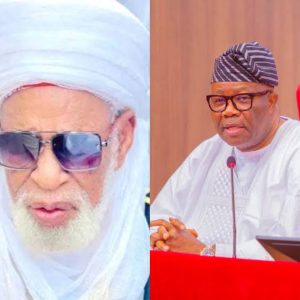•Tinubu and loan illustration
Nigeria has secured an approval of a $500 million loan by the board of directors of the African Development Bank Group (AfDB) to fund the second phase of the Economic Governance and Energy Transition Support Programme.
The policy-based operation, approved at the bank’s headquarters in Abidjan, will support government reforms across fiscal years 2024 and 2025, targeting fiscal consolidation, energy-sector transformation, and climate-resilient growth, reports Daily Independent.
Announcing the approval, Abdul Kamara, Director General of the AfDB’s Nigeria Country Office, said the new financing is designed to “stimulate inclusive growth by accelerating structural reforms in the energy sector while supporting progressive fiscal policy reforms to boost non-oil revenues and expand fiscal space.”
He added that the second phase will consolidate the gains recorded under the first phase of the programme, deepening policy consistency and strengthening reform outcomes.
The AfDB said the programme will focus on three strategic areas essential for stabilising Nigeria’s public finances, reducing energy poverty, and accelerating the country’s energy transition plan.
Fiscal Reform and Public Financial Management: The programme will strengthen public financial management systems, enhance efficiency in government spending, and deepen transparency across public institutions. It will also support reforms aimed at expanding non-oil revenue, a long-standing weakness in Nigeria’s fiscal structure.
Power-Sector Reform and Energy Access: A significant portion of the support will target reforms in the power engineering and electricity sector.
Key objectives include reducing energy poverty, boosting grid reliability, expanding electricity access for homes and businesses, improving governance, and creating a more attractive environment for private-sector investment.
Energy Transition and Climate Action: The programme will also advance Nigeria’s climate commitments by supporting the implementation of its energy transition plan. Measures include introducing energy-efficiency standards for electrical appliances and updating the country’s Nationally Determined Contribution (NDC) for the 2026–2030 period.
These interventions align with global decarbonisation trends and strengthen Nigeria’s ability to adapt to and mitigate climate change.
Key beneficiaries will include the Federal Ministry of Power, Federal Ministry of Finance, Federal Inland Revenue Service, Office of the Auditor General, Debt Management Office, National Climate Change Council, Nigerian Electricity Regulatory Commission (NERC), and several other institutions responsible for macroeconomic, environmental, and governance policies.
The bank noted that private businesses across Nigeria will also benefit from improved regulatory clarity, a stronger investment climate, and new opportunities within the power and renewable-energy value chains. States are also expected to gain from reforms that encourage public-private partnerships.
As of October 31, 2025, the AfDB’s active portfolio in Nigeria consisted of 52 projects worth $5.1 billion, spanning infrastructure, agriculture, energy, governance, and human-capital development.
The latest $500 million approval reinforces Nigeria’s position as one of the bank’s largest and most strategic partners on the continent, especially at a time when the country is pursuing critical reforms to restore macroeconomic stability and drive long-term growth.
The programme’s implementation is expected to accelerate fiscal discipline, improve electricity supply, support climate action, and unlock new private investment across Africa’s largest economy.


























